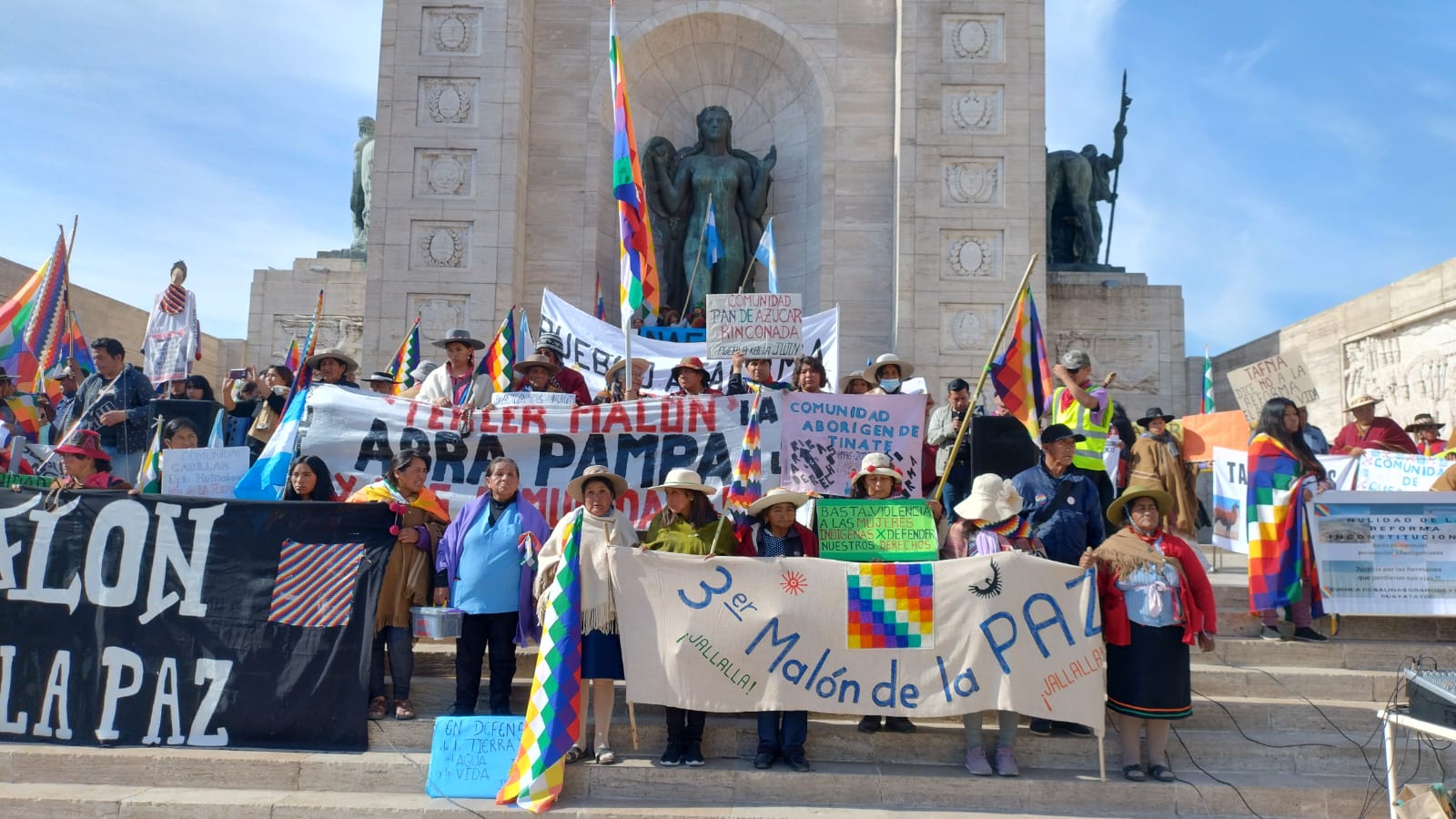
Thousands of indigenous people from the northwestern Argentine province of Jujuy arrived in Buenos Aires on Aug. 2 after marching cross-country to protest a provincial constitutional reform allowing greater lithium extraction from the lands they reside on. The marchers said that increased mining of lithium would exacerbate drought conditions, and cause soil contamination and other environmental damage. The protesters called on the Argentine Supreme Court to strike down the reform, saying indigenous voices were largely left out of the debate that led to its approval. Justice Minister Martín Soria asked the court to declare the reform unconstitutional in June, citing indigenous rights concerns.
On June 15, provincial lawmakers approved the constitutional reform that would increase mining in Jujuy after a mere three weeks of debate.
Article 14 of the international Indigenous & Tribal Peoples Convention, to which Argentina is a signatory, states: “The rights of ownership and possession of the peoples concerned over the lands which they traditionally occupy shall be [recognized].” Article 15 of the convention also stipulates: “The rights of the peoples concerned to the natural resources pertaining to their lands shall be specially safeguarded. These rights include the right of these peoples to participate in the use, management and conservation of these resources.”
The UN Environment Program (UNEP) said in 2022 that governments should agree on mining principles that safeguard the environment.
From Jurist, Aug. 3. Used with permission.
Note: The march was dubbed the Third Malón de la Paz (which translates somewhat oxymoronically as the Invasion of Peace), after two earlier such mobilizations for land restitution in Jujuy, in 1946 and 2006. (Página12)
See our last post on the global lithium wars.





Argentina: demand justice for victims of Jujuy violence
Victims of state violence in Argentina’s Jujuy province deserve justice two years later, Amnesty International said in a report May 30.
In 2023 the province of Jujuy underwent a constitutional reform initiated by Governor Gerardo Morales, which resulted in protests. Those protesting included teachers’ unions, indigenous communities, leftist parties, and the dissenting wing of the Jujuy Justicialist Party. An Amnesty International delegation visited Jujuy on May 28-29 to engage with authorities to seek justice, reparations and assurances of non-repetition for the victims of state violence.
the province used force to repress the 2023 protesters, including tear-gas and rubber bullets, which left numerous people injured, including Joel Paredes who was drumming at a protest march and suffered permanent damage to an eye. (Jurist)